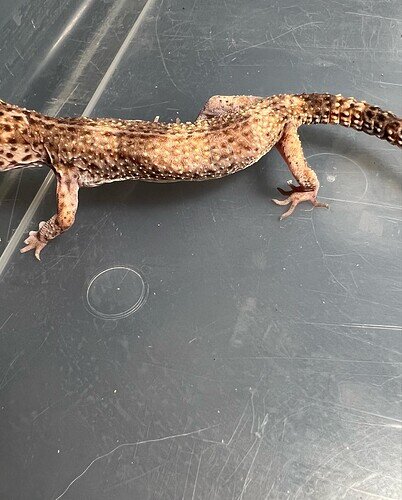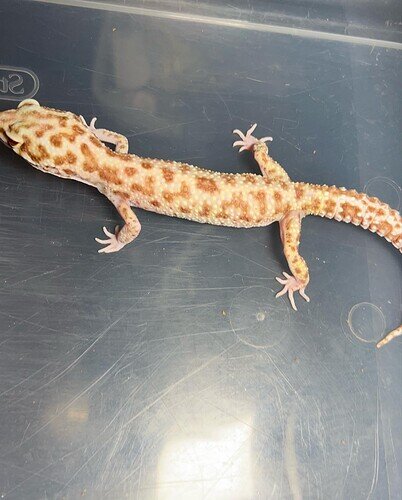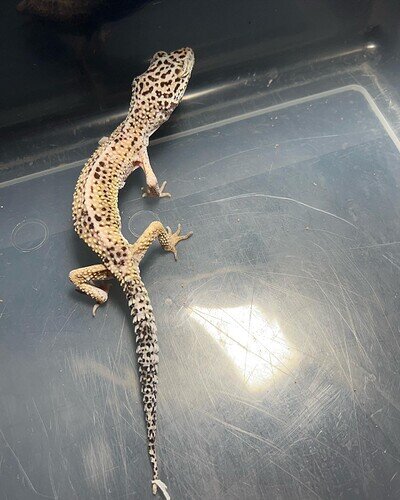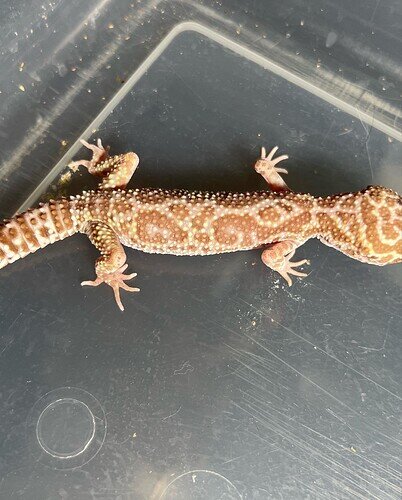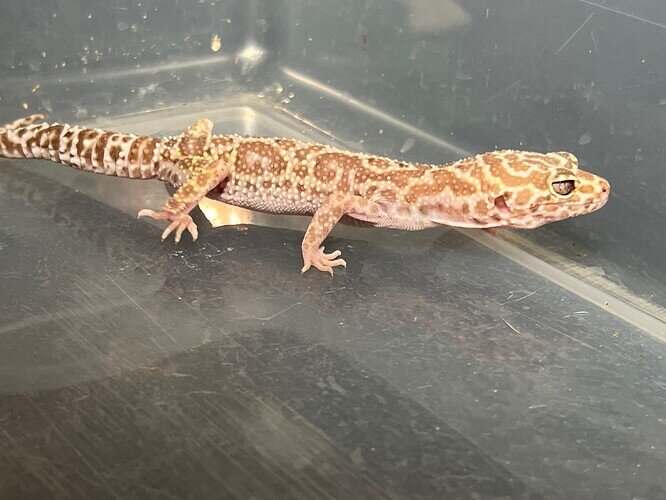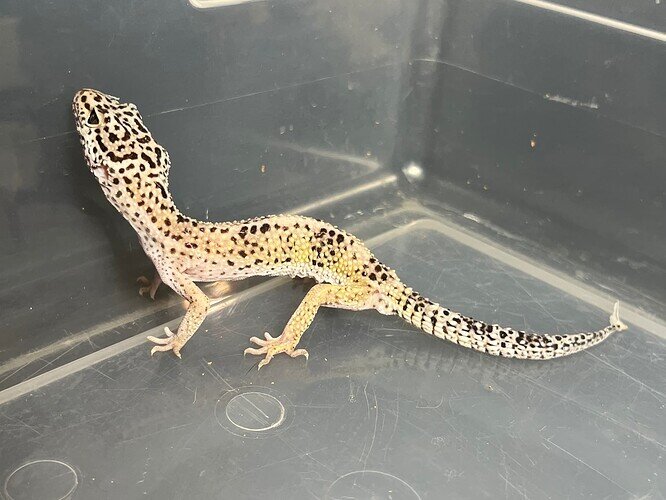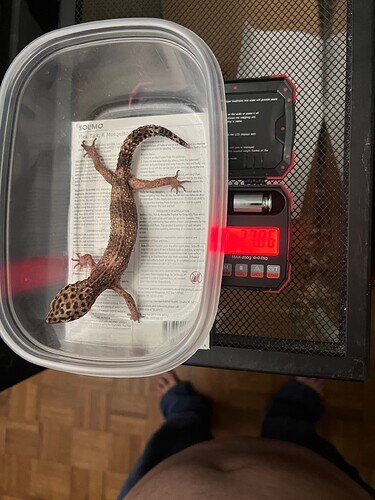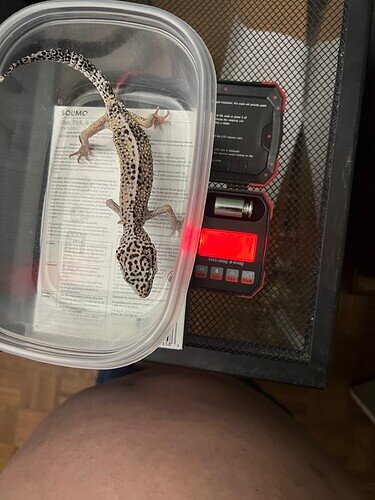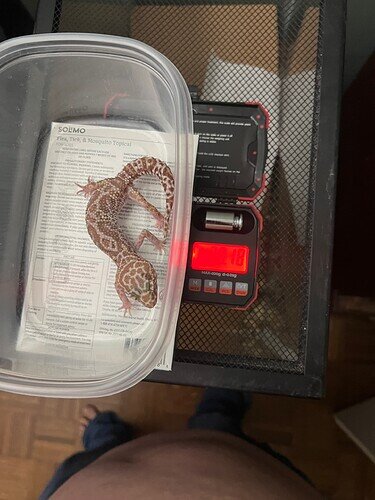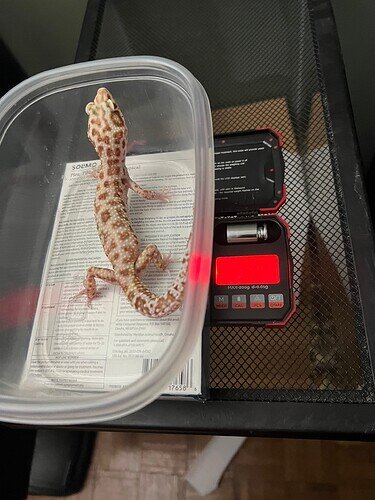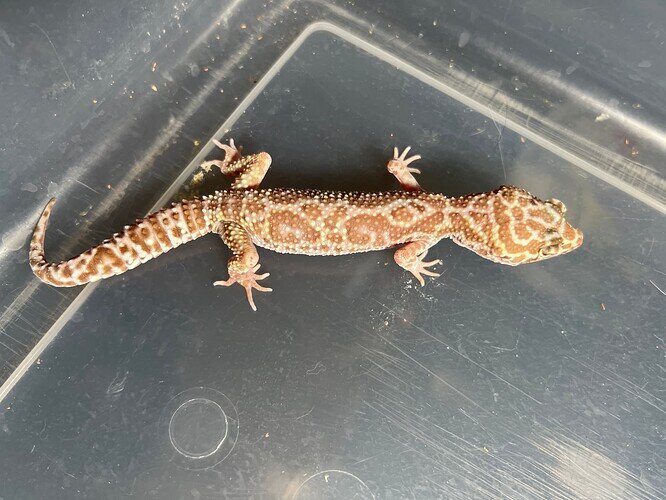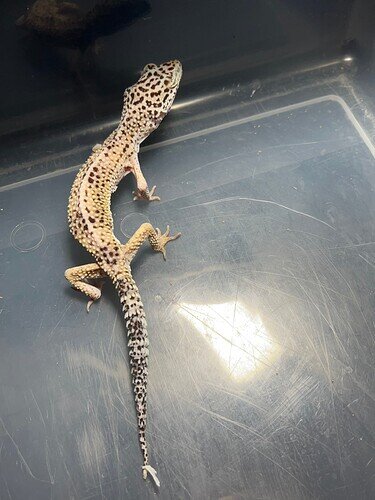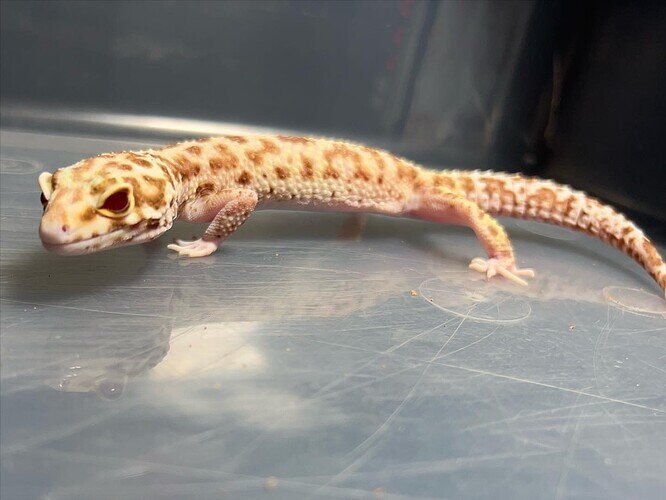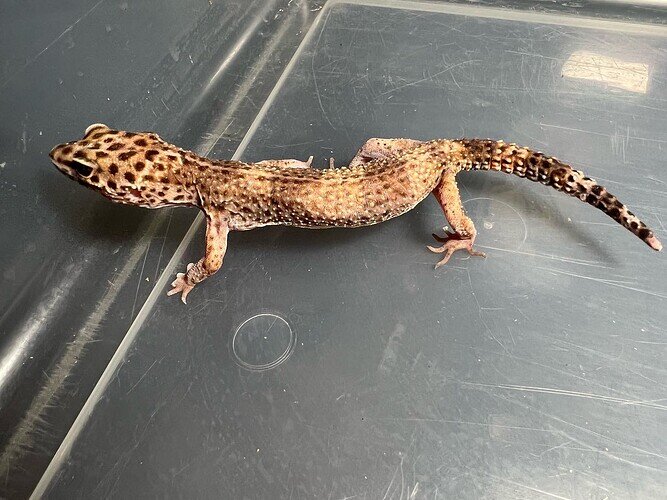I rescued four leopard geckos today that were abandoned and left to someone that did not know how to care for them. When I get home I’ll let them soak in warm water while I set up their tubs. I filled up their food bowls with meal worms and supplements along with hides and humidity boxes. I took these pictures and left them alone after that to let them settle in to their new homes. Any advice on what I can do to help them get back to good health as quick as possible?
I’ve never kept Leo’s so I can’t help but I just wanted to say that it is so sad how bad of condition they are in how long where they abandoned for I don’t know about leopard geckos but with most other reptiles it takes months and months of neglect to get to there I’ve seen ones left in apartments:houses for 3 months in better condition
I’m in the same boat!!
I took on 6 a couple weeks ago!
Keep updating so we can see how they get on, and good for you for taking them, now to get some weight on the little guys ![]()
Poor little guys with their stick tails! 
@mblaney I know your main focus is Leos, do you have any suggestions for improving their body condition?
My knee jerk thought would be to give them some extra wax worms, but I’m foggy on what percentage of their diet should consist of that. I know that would give them some quick fat reserves.
My boy only really eats once a week or so to maintain his condition without getting too chonky, but if I was needing to bulk him up, I would offer food every day or every other day for a couple of weeks. My favorite food source is dubia roaches.
At any rate, best of luck on getting them healthy again!
Do not give them tons of food and water right away, they could potentially die if reptiles also get refeeding syndrome. I do not know if reptiles get it, but I would assume they do to start with. Also the hypernatremia caused by water deprivation needs to be corrected gradually, at least in mammals.
I’ll post this right away then continue in another comment.
Those animals are in very serious condition and need to see a reptile/exotics vet (not just any vet) immediately, all of them. If you do not know how to find a reptile vet, you can get some tips HERE. The skinniest ones need to be seen within the next 24 hours, it’s worth it to pay any extra fees for emergency/same-day appointments.
Do not feed mealworms, and above all do NOT NOT NOT leave any uneaten, live, loose prey insects in their enclosures, especially crickets. Your geckos are extremely weak and are likely to be predated upon. I have seen a case where a well-meaning leo rescuer left crickets in with a weak, emaciated gecko, and the crickets ate a hole directly into the leopard gecko’s body cavity (coelom). He didn’t make it.
I strongly suggest giving them only a single, brief soak to start, to get rehydration started gradually. Then offer a single prey item per day, ideally a silkworm or very small hornworm. For the weakest ones, I suggest pre-killing the insect and offering via tongs. Alternatively you could syringe-feed them Carnivore Care, EmerAid, or (in a pinch) Repashy’s ‘Grub Pie’ mixed with water. I’d give no more than 0.5ml/day for the skinniest geckos to start with.
If you cannot get ahold of silkworms or small hornworms quickly, gutloaded BSFL are an okay substitute (they may be in the feces, looking undigested, but it’s my understanding the inside is actually digested- I can’t remember my information source, though). Gutloaded dubia of the smallest size are ok-ish, make sure they are well hydrated before feeding.
Mealworms, superworms, waxworms (the worst choice), and butterworms are all too fatty for animals recovering from severe starvation. Crickets are too risky, for the reason stated earlier.
You can gradually, start increasing the length of soaks, over the course of a couple days, until water is offered freely. In contrast, you need to be slower with increasing the amount of food you are giving. A reptile veterinarian is the best bet to guide you regarding how quickly to progress with each individual gecko.
I think it should still be ok to have humid hides, just not like sopping wet. Make sure they have easy access to dry hides on both the warm and cold sides of their enclosures too. Make sure the warm end reaches at least 88’F where the leo will be lying (not just on the outside of the tub), temp guns are great for that.
Definitely house them individually, and in strict quarantine away from any other animals you may own. I would be certain to have fecal tests run by your reptile vet for each gecko as soon as you are able, they should not come out of quarantine until they’re individually cleared. Fecal samples need to not be totally dried up- ideally fresh when collected. Either bring it to your vet right away or you can store it (carefully bagged) in your fridge for up to 8 hours. Do not freeze fecal samples, it ruins them.
Ok, all that advice aside- you are doing something incredible by taking these babies under your wing. I know it can be overwhelming, I have been in the same situation myself. Just do the best you can and be confident that it’s a million times better care than they had been receiving. They are in really bad condition, so don’t blame yourself if they don’t all pull through.
edit: don’t forget to lightly supplement. My suggestion would be to give a multivitamin powder on separate days from a Ca powder, with only one of those having D3 in it. Alternatively you could just use Calcium Plus (Repashy) in a pinch.
I knew you’d be the right person to get in on this! Thank you for putting me straight as well.
